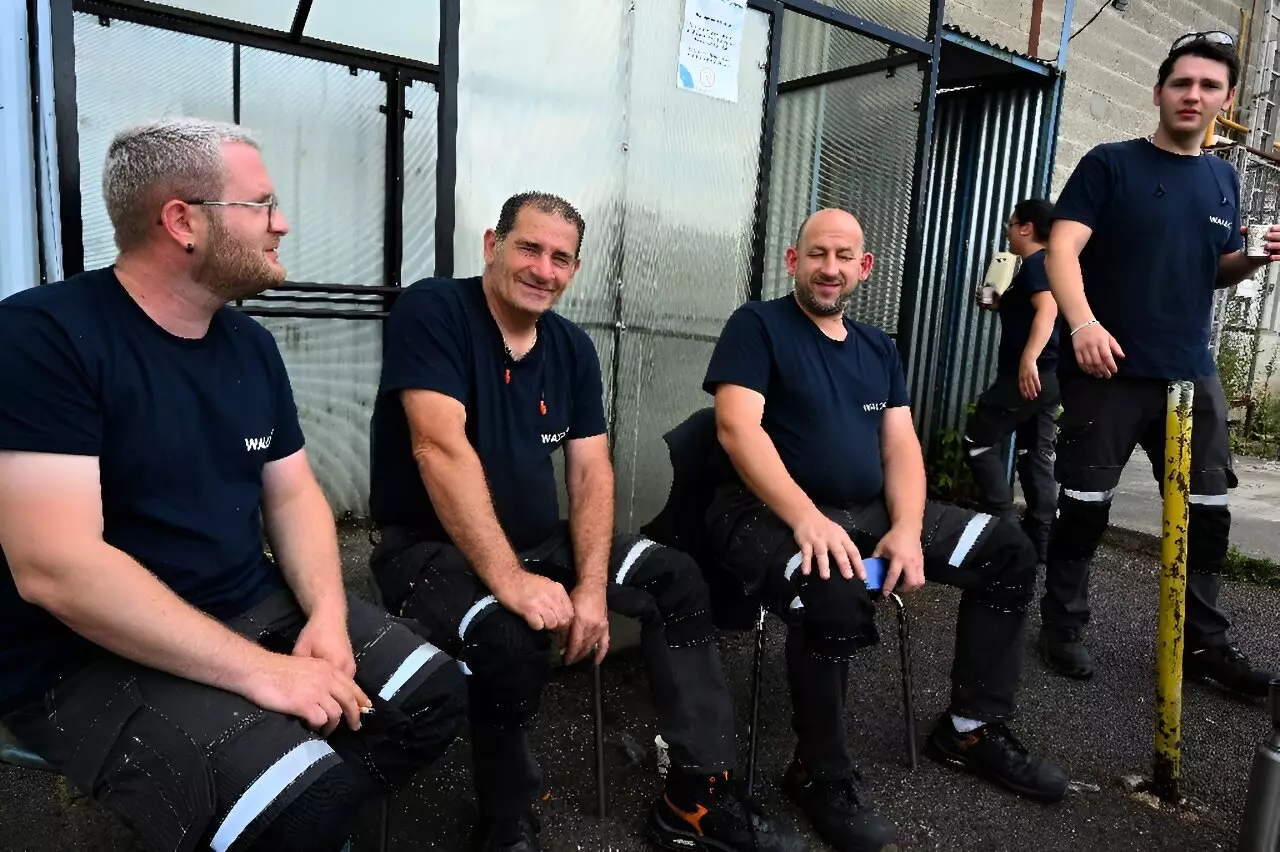The looming deadline of 2035 for France to phase out new combustion engine cars is causing a ripple effect throughout the country’s auto industry. While regions like the north of France are optimistic about the emergence of a “Battery Valley” with the construction of battery gigafactories, workers at parts suppliers in other areas are growing increasingly pessimistic. This transition to electric vehicles not only calls for a change in technology but also in the workforce, leaving many workers concerned about their future in the industry.
Struggling Firms, Shrinking Order Books, and Uncertain Futures
For workers like Severine Person, a quality control expert at a facility in the Ardennes region, the transition to electric vehicles has brought uncertainty about the future of their jobs. Despite being part of a company that produces parts for tractors and trucks, the demand for certain components like transmission differential housings and engine manifolds is expected to decrease with the shift to EVs. The lack of investment from acquiring companies and the decreasing order book are signaling possible closures and job losses, leaving workers like Person resigned to an uncertain future.
Emergence of Battery Gigafactories and Retraining Programs
On the other side of the spectrum, regions like Douvrin in the north of France are seeing the construction of battery gigafactories, giving hope to workers in the industry. Companies like the Automotive Cells Company (ACC), a joint venture between Stellantis, Mercedes, and TotalEnergies, are investing in massive battery plants that aim to create thousands of new jobs in the sector. These facilities also come with training programs to retrain existing employees, like the 12-week training provided to Stellantis-Douvrin employees on overseeing highly-automated production lines in the battery factory.
Despite the efforts to create new jobs in the electric vehicle sector, studies have shown that the transition could put thousands of jobs at risk in the auto industry. Economists like Bernard Jullien predict job losses of up to 40,000 in the auto parts sector alone over the next decade. The concern of offshoring, as seen in the steel industry, is looming over the auto sector, with fears that manufacturers might move production to countries with lower production costs. This fear is exacerbated by the production of electric vehicles in countries like Slovakia, raising questions about the future of French auto workers.
As the deadline for phasing out combustion engine cars approaches, the French auto industry is at a crossroads. While the creation of battery gigafactories and retraining programs offer hope for some workers, the overall uncertainty and potential job losses are casting a shadow on the future. The shift to electric vehicles presents challenges and opportunities, but the ultimate impact on French auto workers remains to be seen. With predictions ranging from a decrease to 100,000 jobs in the sector, the industry is bracing for significant changes in the coming years.


Leave a Reply